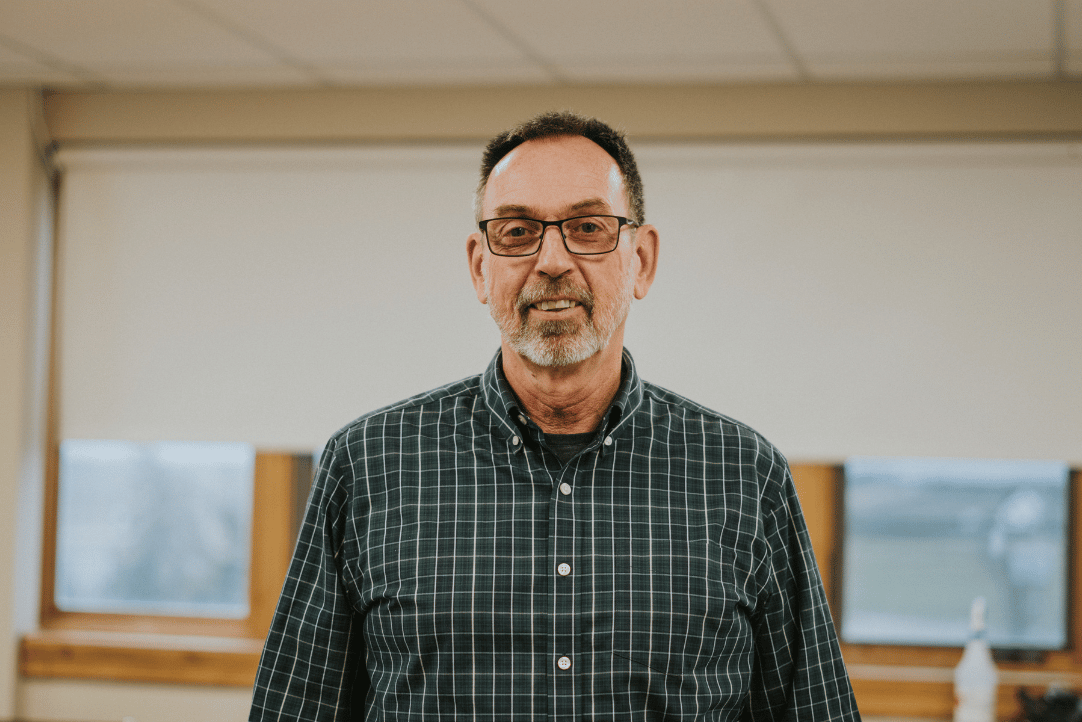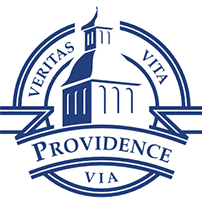Photo above: Dr. Hank Dixon
We are excited about one our newest offerings in the Seminary. Through our Master of Arts and Master of Divinity programs, we are now launching degrees in Chaplaincy/Spiritual Care. You can register for this program as early as Fall 2023.
We’d probably all agree that there is a growing need for well-trained chaplains who provide spiritual care to people right where they are. We need chaplains who know how to compassionately support people dealing with health issues, addictions, aging, grief, loss and trauma in settings such as long-term care, hospitals, prisons and military posts.
We need to bring Christ’s healing to a world that is hurting. That is why Providence’s chaplaincy studies offer core foundational courses in biblical and theological studies, as well as place an emphasis on the practical (or clinical) such as counselling and spiritual care. We are proud of our chaplaincy teaching team. They are not only professors but mentors and practitioners with real world experience in their fields.
Dr. Gloria Woodland, Dr. Daryl Busby and Dr. Hank Dixon are all teaching courses at Providence. Gloria was a hospital chaplain with Fraser Health and now is the Director of Chaplaincy at ACTS Seminaries in Langley, BC. Daryl pastored at Elim Chapel in Winnipeg for several years and was both Professor and Dean at the Canadian Baptist Seminary. He is now a Chaplain among Seniors at the Village at Smith Creek.
Hank has a wealth of experience as a chaplain in our federal prison system. In his book, A Lifer’s Journey: Prison Chaplaincy from the Inside Out (published in 2021), you can read about his heartfelt story first as an inmate, then as a pastor and later as a chaplain. Below is an interview that we conducted following his introductory course called Chaplaincy/Spiritual Care Foundations which was held during a modular week in November.
Providence: Tell us about yourself and how you started on the path to prison chaplaincy.
Hank: I was released from Springfield Institution in July 1985 on day patrol and sent to a halfway house in Halifax, NS. After two or three months being there, I started attending a church called West End Baptist. That’s where I met my wife, Linda, who was working with homeschooled children and the Mennonite Central Committee (MCC). We eventually got married in 1987.
I had begun work on my Bachelor of Arts with a couple of courses under my belt from prison. I completed my degree at Mount Saint Vincent University. Then, we moved back to Manitoba and I took my Master of Divinity at Providence.
From there, I went back to Nova Scotia and pastored three small churches in North/South Brookfield, Westfield and LaBelle. They are located in the southern, central part of the province and I spent six years ministering there, seeing lots of growth and participating in many baptism services.
However, I felt a very powerful call to go back to prison as a chaplain. That was the most difficult decision I’ve made in my life. In 1999, I re-entered prison as a Protestant Chaplain at the Atlantic Institution which is a maximum security facility located in the rural community of Renous, New Brunswick. By the year 2000, there were two back-to-back riots and I ministered there for four years, before being transferred to Stony Mountain for nine years. These experiences cultivated a deep well of compassion and care for inmates and staff that has never left me.
Providence: What type of work are you doing now?
Hank: Currently, I am the Executive Director of Initiatives for Just Communities. We have four different programs. The biggest one is El’dad Ranch. We work with adults with intellectual disabilities and provide them with housing and community supports.
In Winnipeg, we run a number of programs. One is called Touchstone which works primarily with individuals with Fetal Alcohol Spectrum Disorder (FASD) and the other is Circles of Support and Accountability (COSA) which works with sex offenders who are released from prison. Then, we have the Open Circle initiative which is a prison visitation program.
Once I left Stony Mountain, I first worked as Regional Manager with Karios Pneuma Chaplaincy (KPCI), supervising the Prairies. Then, I completed my Doctor of Ministry (2014) at Providence and worked for Open Circle for six years. In 2020, I became the Executive Director of Initiatives for Just Communities, and I’ve worked there ever since.
I was pleasantly surprised when Providence approached me about teaching a course in the Seminary.
Providence: Can you tell us about the ‘Foundations’ Chaplaincy Course you’ve started for the Fall 2022 Semester?
Hank: This is the first year it is being taught. I crafted this course so that we have a general overview of chaplaincy. We look at different aspects of chaplaincy and focus on the building blocks that make up a good chaplain. Our outline is as follows:
- History of Chaplaincy
- Models of Chaplaincy
- Competencies in Chaplaincy/Spiritual Care
- Theology of Chaplaincy
- Ministry of Presence
- Identity in Chaplaincy
- Cultural Spiritual Competency
- Multi-Faith Context
- Chaplaincy and the Law
- Record-Keeping
- Institutional Relations
- Staying Safe in Chaplaincy
Providence: Chaplaincy crosses over into areas of pastoring and counselling. In your opinion, what kind of characteristics does a chaplain need to have?
Hank: I believe chaplaincy occupies a very unique place in the ministry dynamic. In one of my lectures, I tackle the whole idea of identity. There is a spiritual counselling component, a spiritual care component and also a spiritual direction component to chaplaincy. All three components come together to form and shape a chaplain.
One of the terms that you hear a lot in chaplaincy is ‘presence’ – what it really means to be present with people. It is probably one of the more misunderstood concepts in chaplaincy. You need to be able to engage in different conversations on difficult topics and be able to meet people where they are at.
Because of my own experience, and since I’ve been the recipient of chaplaincy care as an inmate, I think one of the aspects that I’ve always deeply appreciated is being non-judgmental. It is the capacity to walk with someone and not judge them; to help them sort out their journey. That to me is one of the core pieces that encapsulates chaplaincy. You don’t necessarily find it elsewhere as you engage the world.
Providence: Chaplains are present in the crisis and pain moments. They deal with grief, loss and suffering. It takes a certain type of person to be able to navigate all of this in a healthy way. Can you speak into this more?
Hank: You need to be grounded in your own life, in your faith and in your sense of who you are – not only as a person, but in your call. It is only out of this place that you can really minister, be empathic and caring with other people.
It is not always easy to do especially when I recall some of the situations I’ve dealt with in my ministry. I’ve dealt with murders, beatings, suicides and riots. Some of it has been extremely tough and it has taken its toll. It’s not the kind of thing you walk away from and shrug off. It has an impact on us. So, there is a real need to anchor yourself, but also have the supports around you to handle things as they come along.
Providence: When individuals consider a chaplaincy education, how can they determine if it’s something for them?
Hank: I had a conversation with Gloria Woodland who is teaching the second unit for the chaplaincy program. She says some students take chaplaincy courses because of the skill set she teaches which translates into other areas.
For instance, pastors are interested in learning how to deal with individuals and families in crisis. You can tackle these issues from a spiritual perspective, but chaplaincy brings the clinical into the picture with the spiritual. It’s a joining of these two skill sets that, I think, is very helpful for people when they are called into different situations such as how to deal with a dying child in a hospital.
In our program at Providence, we provide training for chaplains, but we also provide opportunity for people in ministry to expand their skill set and to expand their tool box, so to speak.
Below are our next two Chaplaincy/Spiritual Care course offerings:
CH5102 Chaplaincy/Spiritual Care Vision and Leadership | Feb 20 to 24 Modular Week
The impact of this course on the learner will help them define and implement a vision for their ministry and how they will lead. This vision will encompass all aspects of the life of a chaplain, both personal and corporate and will define how they desire to reach and encourage people within their ministry in a respectful and caring way. Their leadership skills will be studied and applied to their context to embody integrity, self-awareness, creativity, and wisdom. Taught by Gloria Woodland
CH6201 Pastoral Care: Theology of Suffering | May 15 to 19 Modular Week
The student will, from this study, hone a robust and compassionate practice of pastoral care which reflects appropriate and authentic expressions of love in their ministry context. Out of which, they will develop an integral theology of suffering. They will wrestle with the questions around pain. Through that struggle, they will define compelling ways to communicate hope in the midst of suffering as they deliver effective pastoral care. Taught by Daryl Busby.
If you are interested in taking graduate studies in Chaplaincy/Spiritual Care, contact one of our enrollment advisors here. You can also audit a chaplaincy course during one of our upcoming modular weeks. Discounts are available for alumni, pastors and church leaders. Learn more here.


